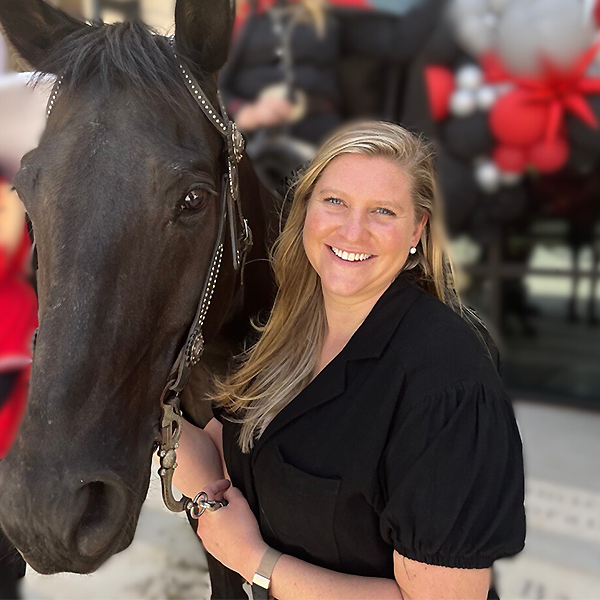
Bethany Baxley is discovering ways to improve the wellbeing and welfare of horses used for Equine-Assisted Services.
As we celebrate Graduate Student Appreciation Week, meet Bethany Baxley who is in our innovative Ph.D. in One Health Sciences program. Her passion in animal welfare and wellbeing, specifically in horses, is making a difference in human, animal and ecosystem health. Let’s get to know Baxley more through a series of questions.
What are you passionate about in research and One Health?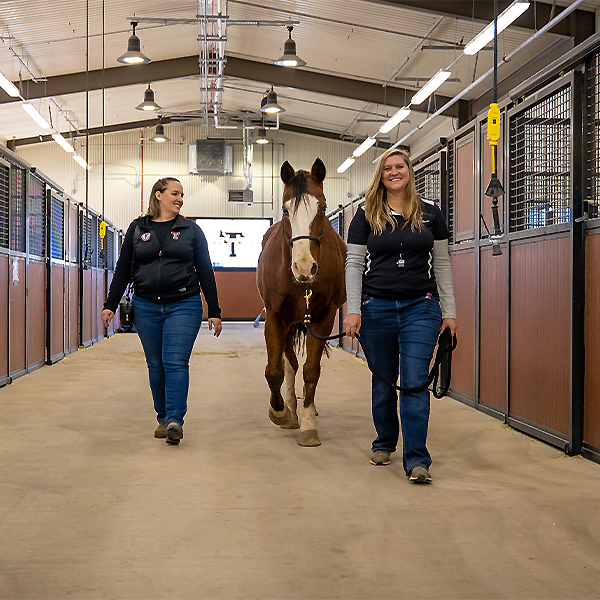
I am passionate about research that improves our understanding of the complex relationship between humans and animals, particularly in the context of Equine-Assisted Services (EAS). Professionals utilize the horse in these services to improve the emotional, mental, and physical well-being of participants. From a One Health perspective, I want to explore how we can optimize both human well-being and horse welfare in these interactions. I am particularly interested in addressing the current imbalance in research, where the benefits to humans are well-documented, but the impact on the horse needs more attention.
What inspired you to pursue research?
My inspiration comes from being an Equine-Assisted Service riding instructor prior to starting at Texas Tech. I have always been a ‘horse crazy’ person, but I was first exposed to EAS as a summer camp counselor for children with special needs and disabilities. There is nothing like hearing a child say their first word on the back of a horse, when clinical therapy showed no improvement. This is only one of my firsthand experiences seeing the positive impacts these services have on participants. I also saw what is referred to as ‘burnout’ in EAS horses. Due to behavioral or health changes, some horses were no longer able to work in sessions with participants. In researching this area, I learned that my experience wasn’t isolated. Many centers report that horses must be removed from programs due to behavioral and health issues. Without the horses, centers cannot offer these life-changing services. My goal is to help understand what horses are experiencing in EAS so we can gain knowledge on improving their welfare and keep them working in these services.
What is your research?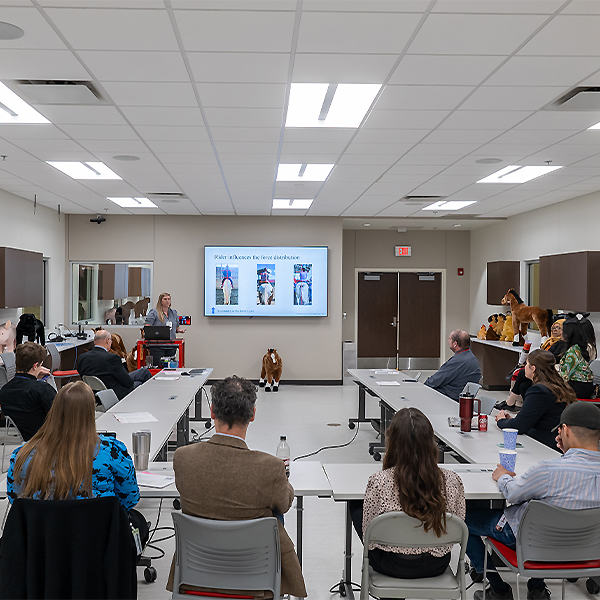
Most of my research focuses on the impacts of rider presence and posture on equine behavior and gait, or way of moving, in EAS. Research has shown that when someone is physically on the horse’s back they receive passive input that mimics motion of a human walking. This movement improves balance, motor and sensory function. Specifically, using behavioral observations and a gait analysis system, I am investigating how rider imbalances may lead to negative behaviors and gait abnormalities. I hope my findings will provide insight into how the diverse participants that ride horses in EAS impact their behavior and natural motion or gait – overall aiming to provide a more complete assessment of horse welfare in EAS settings so that we can improve their wellbeing.
What opportunities have helped you advance your research?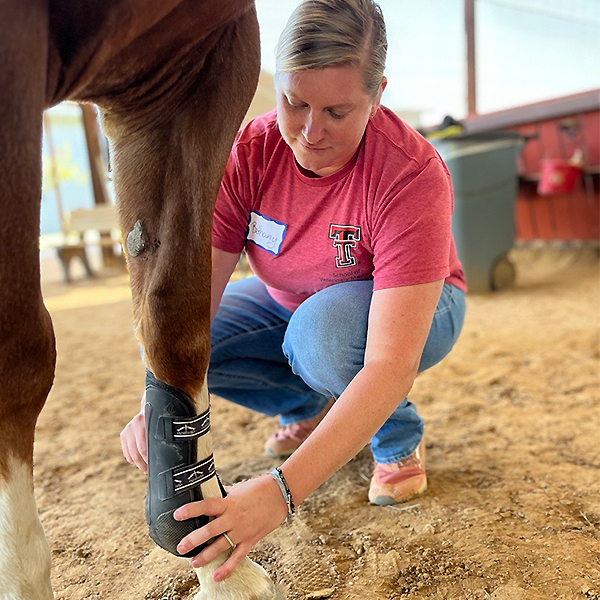
I have had the opportunity to collaborate with multiple EAS centers, gaining access to a diverse population of horses and riders. These collaborations have been essential for collecting data in real-world EAS settings.
Why did you choose Texas Tech to pursue your Ph.D. in One Health Sciences?
Texas Tech’s School of Veterinary Medicine’s Ph.D. in One Health Sciences program emphasized the interconnectedness of human, animal, and ecosystem health. As my research aligns with understanding animal well-being in order to improve human well-being, it was a natural fit to choose Texas Tech.
What do you like most about the One Health Sciences Program?
I have appreciated the interdisciplinary nature of the program. I have interacted with researchers from diverse fields, broadening my perspective and enhancing the relevance of my work.
How has the school helped you become a better researcher?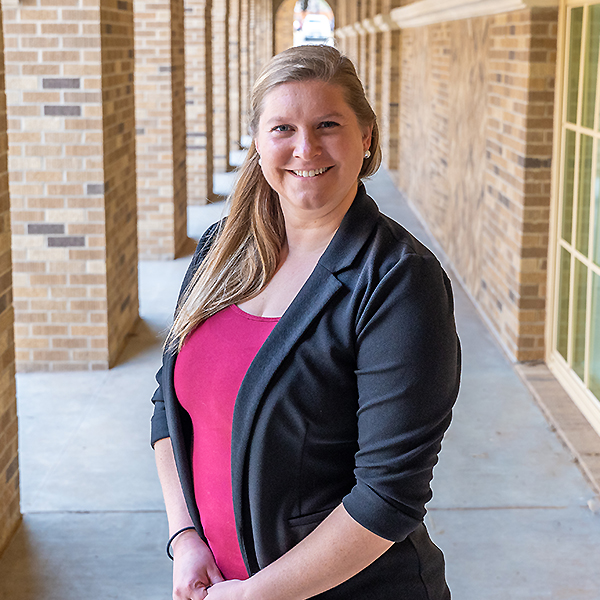
Texas Tech has equipped me with the skills to conduct rigorous research, analyze complex data sets, and effectively communicate my findings. The program has also instilled in me a strong sense of ethical responsibility concerning animal welfare.
What do you hope to do after graduating?
Once I graduate, I want to pursue a career in academia or industry research. I want to continue researching EAS and human-animal interactions to increase knowledge of evidence-based practices and enhance the well-being of both humans and animals.
